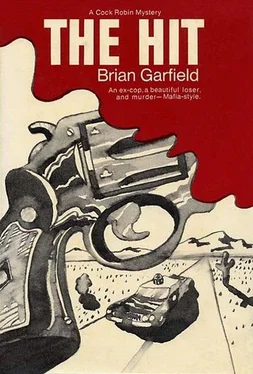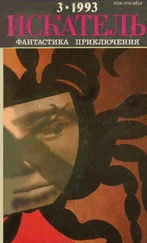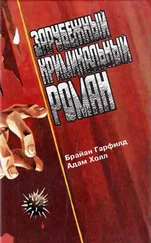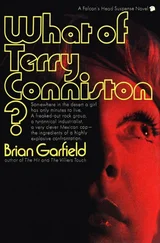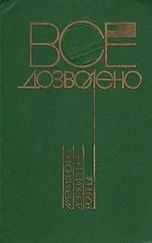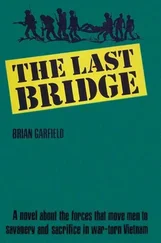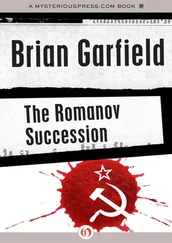“An interested party.”
“You’re one of them. I knew it. A hoodlum. You want to find him so you can kill him.”
“Why should I want to kill him?”
“You know perfectly well.” She was glazed, mumbling in thickening syllables. “He told me he had some kind of — he called it a beef, against the Mafia. He said he had a lot of evidence against them and if he can’t straighten things out with them he’ll release some of it to the newspapers. He says it’s enough to blow the Mafia sky-high, and a lot of politicians with it.”
The stuff I had put in her drink, chloral hydrate from sleeping capsules, wasn’t supposed to act as a truth serum, but it seemed to be having that effect. Either that or the alcohol had entirely wiped out her inhibitions against disclosing dangerous secrets. Or maybe she was just getting revenge on him.
It didn’t matter any more; she crumpled slowly and lay inert. I straightened her out on the couch, tested her pulse, closed the bathrobe around her, and began to subject the house to a painstaking search.
The sun threw a last burst of light along the horizon. I emerged from the house empty-handed except for a key case I’d lifted from Sylvia’s purse. I used it to let myself into the garage, and spent ten minutes climbing rafters and seeking cubbyholes. Nothing. I went back to the house and put the keys back in her bag. Where else? His office, I supposed. Or the car he was driving — her car, she’d said. There was no question in my mind what kind of car it was. I’d never seen it but it had to be a Cadillac and it had to be pink
I left her on the couch, snoring, and let the lock click shut behind me when I went outside. In plum-colored dusk I drove up toward the foothills. I stopped once, to telephone Nancy’s house and talk to Joanne. I told her, in a voice so weary it alarmed her, that I was on a warm trail and would see her soon. “Don’t set fire to your hope chest just yet,” I said lamely, and hung up, and got back in the Jeep to climb the foothill street.
On the way up I paid no attention to the bright neon display on the flats below. It was fully dark by the time I drove across the deserted parking area, past the brightly lit windows of the expensive shops that were closed for the night but lighted against burglars. I didn’t park in front this time; I found the service road and drove around back, out along the narrow asphalt path that hugged the rim of the hill the way the mountain road hugged the cliff where Ed Behrenman had made his plunge. Quite a bit of light flowed up here from the illuminated city below.
The back door of a pharmacy had a neon sign that spattered and fizzed.
The pink Cadillac four-door sedan was parked at the end of the service road. I rolled the Jeep to a quiet stop behind it. The adrenalin pumping through my body made my hands shake.
I had to walk past the Cadillac to get to the back door of the place, but I was interrupted by the sight of the man slumped in the driver’s seat of the big car. I stopped, lifted the Beretta, and gingerly reached inside to shake him. It was Dr. Fred Brawley, but what the hell was he doing asleep in the Cadillac?
He wasn’t asleep. He was dead. When I touched him he pitched over on his right shoulder and didn’t move. I opened the door and examined him by the light of the dash and map lights. He had been shot in the back of the head by a bullet of sufficiently small caliber and low velocity to lodge in the skull; it had made no exit wound in front.
I felt sinking disgust and a coiling tension in my groin, the acid sense of failure. Somebody had beat me to him. Somebody else had found him out, killed him and taken the loot. I was right back where I’d started.
The corpse was still warm; he hadn’t been dead more than a few minutes. Maybe there was still a chance. I withdrew from the car, glancing into the back seat — a suitcase and an overcoat. I opened the suitcase: just clothes. Brawley had been traveling light.
The quadrangular medical office building had been locked up for the night, I supposed, but when I glanced up at the corner picture-window ten feet above my head I saw the wink of a small light traveling across the glass in reflection. Someone was inside Brawley’s office with a pencil flashlight. Blood pumping, I walked around the Cadillac to the back door of the building.
The metal door had been jimmied open; it stood slightly ajar. I pushed softly inside, taking the Beretta off safety and holding it at ready. As I climbed the stairs toward the upper floor — that was the ground floor if you entered from the front; the pitch of the hill made the difference — my nostrils detected the lingering firecracker scent of cordite sulfur.
The stairwell was dark. I went up on tiptoes. At the head of the stairs the door stood wide open, giving out into the long corridor. At the end of the hall I could see the faint reflections of the moving flashlight around the corner in the office. I went forward along the soundless carpet, gripping the Beretta, taut with the knowledge that if the man was still searching for it then he hadn’t found it.
I eased up to the open office door and slowly put my head around the jamb, and saw him.
He had his back to me. He was trying to get the safe open. He had tools; the pencil light was in his teeth and he was using both hands on the tools. The little electric drill was whining with the particular whine of a diamond bit. I had a drill like that; I use it on rocks.
There was a click as the drill plunged through, and as he withdrew the bit and set the drill down on the chair beside him, I heard him grunt — a breathy, falsetto sort of grunt caused by the old injury to his larynx.
I said, “Stand still, Pete. Freeze.”
DeAngelo wheeled. In the flickering strange light of the tumbling flashlight I had a glimpse of his grin, a spasm of clenched teeth and drawn lips. His hand, as quick as a diamondback’s strike, was spinning a silencer-weighted pistol toward me.
He wasn’t allowing any argument. I pulled the trigger, too much in haste, and saw vividly the jump and puff of his shirtsleeve as the flesh received the bullet. It stung him but he was still moving, diving toward the desk. The automatic in his fist made a little puff of sound and I heard the solid whack of the bullet driving into the wall above my head. I wheeled back, flattening against the outside of the doorjamb; slid down to the floor and went into the room on my belly, gun out in front. But he took me by surprise: he launched a chair through the picture window, and in the crashing confusion went out through the jagged opening.
He had a ten-foot drop to the ground. I got my feet under me and crossed the room fast. The leg of a chair, unseen in the dark, tripped me; I sprawled, cursed, got up and peered down through the shattered window.
I had a glimpse of him, running with a limp past the neon drugstore sign, his face a twisted ugly mask of fury. He stopped and fired at me, just once; I ducked, put my head out again and watched him disappear at a shambling run. The only explanation I could think of was that he must have been running out of ammunition.
He would probably summon help from the nearest phone. I didn’t have much time. I went to the wall safe.
Luck, this time in my favor. He had broken the lock with his drill just before I had surprised him. The door swung open. I picked up his pencil light from the floor and played it around the inside of the safe.
There was only one thing inside that hadn’t been there when I’d looked inside this morning. The addition was a gun — a Walther 9 mm automatic.
I took it out, checked its loads, and put it in my pocket.
I tested the safe for false walls or bottom, but it seemed sturdy, and there was no money in it. I looked around quickly, going through drawers and the brown filing cabinet. The loot wasn’t in the office. I spent only five minutes going through the rest of the examining rooms and closets; what I sought was bulky and I didn’t waste time on small enclosures. There was no money, and as far as I could tell there was no evidence lying around that could, in Sylvia Brawley’s words, blow the Mafia sky-high.
Читать дальше
